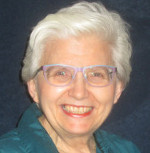

I've just read the first ten of the Mandie series by Lois Gladys Leppard, and felt like I was indulging in a secret cache of chocolates.
From when I learned to read as a child, I've gobbled up books as fast as I could get my hands on them, but I had never met this Mandie series for pre-teen girls before. One day, cleaning up a cabinet, I found the first volume and a boxed set of # 6-10. I recalled that a friend had given me a few boxes of books from a garage sale when I said I dreamed of starting a local library.
I put the books in the bathroom, and in no time was averaging one a day. At our church library I found the missing volumes 2-5.
In this reading blitz I made a number of observations that I think are useful to myself and writers who might want to try their hand at writing such a series.
First though, I should sketch a light outline of the Mandie stories so you know what I'm referring to when I use them to illustrate my points.
It's late 1800s in North Carolina. 12-year old Mandie's father dies, and she is sent away to be a servant. Her father's Cherokee friend, Uncle Ned, helps her escape an intolerable situation, and get to Franklin, the city where her father had a brother.
Her uncle is not home but the servants take good care of her in a fine wealthy home. A girl next door comes to spend time with her. Together they explore a secret tunnel and make more discoveries of Mandie's past.
In the end, her uncle, reported to have died in Europe, returns and he introduces Mandie to her real mother. At her encouragement they marry and she finally has a loving family.
This loving family seems to set Mandie free to solve mysteries, at least one or two per volume in the series. The fact that the characters from the previous books show up in the later ones, even while Mandie keeps making new friends, ties them all together and makes for the kind of books that young girls love to collect.
Mandie gets to meet her Cherokee relatives and ends up discovering gold in a cave, she goes to visit a new friend in Charlston and solves a phantom mystery. She gets to see her grandfather's abandoned ruby mine, and ends up being kidnapped, and persuades her captors to go straight. At the finishing school she and a room mate, check out noises in the attic, and discover a handicapped girl, very hungry, and not able to speak.
These are idealistic and altruistic stories. With all the shows on TV nowadays purporting to reveal reality, these books set the minds of young pre-teens on nobler tracks. There ought to be more of this type.
I did find some small irritants. Mandie's pet kitten remains a kitten even though months pass. I think it should've been called a cat after volume one. The broken English of Uncle Ned and the Cherokee elders seemed unnatural to me. They pronounced all their words without accent, but left words out. On the other hand, the black servants' expressions were quite realistic, full of authentic accents.
This leads to my first suggestion for writing good quality children's serials:
1. Research thoroughly. Modern children are alert to inconsistencies too.
2. You'll need one or more lively characters who are not afraid to investigate and try things out. Adults figure in the story too, but the children must be the main actors in the story. What they do moves the plot along.
3. As for format, plan on 12 to 13 chapters over a sum of 140 to 160 pages. (You could soon have a little formula or pattern working for you).
4. The mystery must be set from the opening chapter. There will be several tries at solving it that fail, but in the end they overcome surprise opposition or problems to win. Naturally, you'll drop subtle hints from the beginning that make the final resolution seem natural and right, even though you try to hide them somewhat.
I recall how pleased I felt when I was able to spot the clues and figure out the outcome before I got to it. Most girls are like that.
5. Remember that for lots of young readers, the way the characters relate to one another helps them to socialize with the people they meet. Vicariously we experience much in our reading that we might not have opportunity to live through in our own lives.
Therefore, obedience to parents, forgiveness when wronged, good manners to older people - things like that are important. Not that the main character is always perfect. Mandie has a problem with rushing off to her adventures without asking permission. Uncle Ned often reminds her to think first, then act. She also has to work at forgiving those who do wrong.
6. For some readers living in dysfunctional families, the reading of such books educates them in how to cope in a real world, and shows them what healthy families are like. (I KNOW this from personal experience!)
7. You can also slip in sound teaching about God and right living, as Leppard does so nicely.
I confess that in my own book, Ruthe's Secret Roses, my interest in spiritual truths grew to the point that I figured, 'Why keep it subtle? There have to be more who are as keen to know more just as I am.' I realize it makes my book different from the general milieu. I made a deliberate decision at one revision to write to please my own tastes.
I'm still confident that there is a good market for my unique writing style. But I am open to learning from others and trying out proven plot patterns like this children's mystery or adventure series.
Does it sound like a steady and fun writing job to you as well? Give it a try.
Back to Writing/Publishing (index).


Ruth Marlene Friesen
The Responsible One
Privacy Promises ~~
Sitemap
Ruthe's Secret Roses (official site)
©2001-2022 Ruth Marlene Friesen
Saskatoon, Saskatchewan, Canada